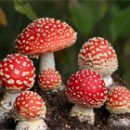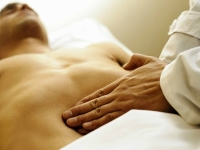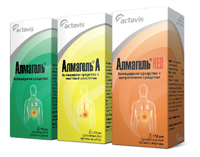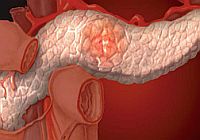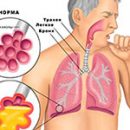What is Ahalasia Cardia? What is a gastroesophageal reflux disease (GERD) or reflux-esophagitis? What is the hernia of the esophageal hole of the diaphragm? What is chronic esophagitis? Answers to these questions you will find in the article.
Content
stomach. Reducing the walls of the esophagus pushing the food com
stomach. It so happened that the diseases of the esophagus often pays very
little attention. Mountains of articles are written about the stomach, intestine, but everything is somehow
Party bypass the esophagus, occasionally only in short, mention «incomprehensible» Ahalasia and Ezophagitis.
Why is this happening? Is it really one of the most persistent human body bodies?
By no means. Food diseases are quite a lot. And often people finding
Symptoms of any disease of the esophagus include it to the heart, stomach, spine
and etc.
The purpose of this article is not to send everyone to search «New Balychek».
And tell brief about the most frequently found diseases of the esophagus. AND
Let's start with the most frequently mentioned Ahalasia.
What is Ahalasia Cardia
Pain and gravity behind the sternum arising shortly after eating. Feeling overflow
In the poverty area. Jumping food. Often drinking while eating, man
Facilitates the passage of food. At the same time, the need to drink often refer to «Habies from childhood».
So, Ahalasia...
Synonyms: Cardiospasm, Megaesophagus (Significant increase in the size of the esophagus arising as an anomaly of development or as a result of the pathological process). In this case, the disease occurs (insufficient disclosure) of the Nizhny
esophageal sphincter, resulting in food is stood in the esophagus, not penetrating
In the stomach.
The cause of the disease is unknown. But there are instructions for disorders of the nervous apparatus
esophagus (its so-called «immaturity»).
For the achalasia of the esophagus, the following clinical manifestations are characteristic:
-
Dysphagia - a violation of the passage of food on the esophagus, its features -
It occurs is inconceive, provoked most often products containing large
the amount of fiber may be paradoxical (solid food goes better,
than liquid)
- Reguming - Food Jumping from Eciasca
- Feeling overflow in the opposite region and behind the sternum
- Zaughty pain
For diagnosis of the disease, radiography, pressure gauge, fibroesophagoscopy.
In the treatment, physical exertion and stressful situations should be avoided. Recommended
Frequent, fractional power up to 6 times a day.
Medicines appoints a doctor. Nitrates are used, anticholinergic drugs,
Calcium antagonists, sedatives, antacids. With ineffectiveness is shown
Cardiodylation - expansion of esophageal lumen with a special cylinder.
What is a gastroesophageal reflux disease (GERD) or reflux-esophagitis
This is a chronic disease due to retrograde (reverse) admission
Food in the esophagus of the stomach. Such a condition is normal, with pathology there are more than 50 episodes
Gastroesophageal reflux disease (T.E. Food more than 50 times returns from the stomach in the esophagus).
Causes. Gastroesophageal reflux disease develops due to the weakness of the lower esophageal sphincter
(with frequent use of rich caffeine products, sharp seasonings, alcohol,
Mint of the List, defeats of the wandering nerve, during smoking, pregnancy), with
Some diseases (systemic sclerodermia, diaphragmal hernia, meteorism,
peptic ulcer, cholecystitis, etc.).
Symptoms are divided into esophageal and uncommon.
Food symptoms include:
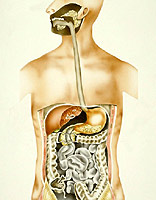
Heartburn- Belching
- Dysphagia - violation of food in esophagus
- Feeling coma for sternum
- Odininiagia - pain when passing food on esophagus
- Pain in epigastry («Under the bow») and esophagus
- Ikota, Vomot
The group of non-complex symptoms include frequent bronchial diseases
and lungs, ENT organs, anemia, pain in the heart, frequent stomatitis, predisposition
to caries.
Diagnostics. With gastroesophageal reflux disease, except
Clinical Data Use Manometry, Ezophagogastroduodenoscopy
(swallowing with all the unloved «Hose»), PH-metry of the esophagus (normal
5.5-7.5, with gastroesophageal reflux disease below 4.0).
Treatment. The main thing in the Medical Program is the normalization of nutrition. Recommended
eat 3-4 times a day, bitten, carefully chewing food. From the diet is not bad
To eliminate overeating, snacking rich in fat, caffeine products
Medicines should be taken under the control of the doctor when aggravating the disease,
when simple nutritional normalization does not help. Assign Antacids (Maalox,
phosphhalugel), Blockers H2-histamine receptors (Ranitidine, Famotidine), decoction
Linen Seed, Cerukal, Cisprid and DR. If ineffectiveness is carried out antirefluxic
surgery.
What is the hernia of the esophageal hole of the diaphragm
As you know, in the norm of the diaphragm separates the abdominal cavity from the chest. This is peculiar
barrier having several holes through which vessels pass, esophagus,
nerves and T.D. from the chest cavity in the abdominal.
The hernia of the esophageal hole of the diaphragm is one of the hernia that visually in no way
Not determined. In this case, the displacement of the esophagus (and sometimes parts
stomach, intestinal loops) through the esophageal hole of the abdominal diaphragm in
Breast cavity.
It is found in 0.5% of the entire adult population, 50% proceeds asymptomatic.
The hernia of the esophageal hole of the diaphragm occurs due to the stretching of the connective tissue of the membrane, which
Normally takes her chest cavity from abdominal.
Causes The hernia of the esophageal hole of the diaphragm:
- congenital weakness of connecting structures
- Increased intra-abdominal pressure
- Purplies of the esophagus and the gastrointestinal tract, as a result of which the esophageal displacement occurs
Top
Manifestations. Approximately 50% of the hernia of the diaphragm esophageal hole maybe
Became asymptomatic. Symptoms of the hernia of the teaching hole of the diaphragm
identical to the manifestations of gastroesophageal reflux disease, but often
In the foreground there may be symptoms characteristic of heart disease
(pain in the heart, arrhythmias).
Features of pain in the hernia of the esophageal hole of the diaphragm:
- More often appear after meals, with exercise, slopes forward, horizontally
- disappear after belching, hiking, vomiting, vertical position
- Pain most often moderate, stupid, strengthened when tamped ahead
Methods of diagnosis and treatment are identical to gastroesophageal reflux disease. With ineffective conservative
Therapy applies surgical treatment.
In the hernia, the diaphragm ecoming hole is not recommended, the work associated with the tilt of the body and voltage
Abdominal press. It follows to sleep with a raised headboard (for 2-3 pillows), mainly
On the right side.
What is chronic esophagitis
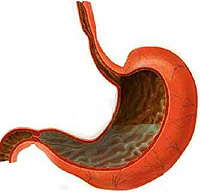
Another esophagus disease that many perceive as quite harmless «Boyat», that «It happens almost all» and «always
herself passes» - Chronic esophagitis. Often its manifestations are attributed
Diseases of the stomach. And with a sluggage behind the sternum, sin immediately on an ulcer (and with
age on heart or trendy osteochondrosis).
In certain diseases of the stomach, however, esophagitis can develop, but it
It happens much less often than it is customary to think.
Chronic esophagitis - inflammation of the mucous membrane of the esophagus duration
more than 6 months.
Inflammation of up to 3 months - acute esophagitis, 3-6 months - subacute esophagitis.
Ezophagitis can develop due to smoking, alcohol, hot (lovers
hot tea, coffee!), coarse food. Due to the professional harm (pairs
acids, alkalis, etc.), traumatization by foreign bodies, allergic reactions,
Polygipovitaminos, lack of iron.
Specific esophagites are also isolated - with syphilis, tuberculosis, fungal
Diseases and other.
The disease is manifested by the following symptoms:
- Dysphagia - violation of food in esophagus
- Painted pains, their feature - communication with meals and dysfagia
- Heartburn
- Belching, vomiting mucus, food parts
- Regurgitation - vomiting just eaten food (esophageal vomiting)
Diagnostics. In general blood test due to chronic bleeding
Maybe a picture of iron deficiency anemia. Conduct x-ray, radiography
With contrast. But most often esophagoscopy is held - swallowing «Hose».
To clarify the diagnosis, biopsy is conducted (take «A piece of shell»
esophagus for analysis). This is a painless procedure.
Treatment. With pronounced pains, hungry is recommended for 1-2 days.
Then prescribe diets. Cold drink applies.
With exacerbations, medicines appoint a doctor. The main task is to anesthetics (Novocaine,
Antispasmodics, in severe cases of morphine). Conduct symptomatic therapy.
Antibiotics can be appointed with prophylactic purposes.


